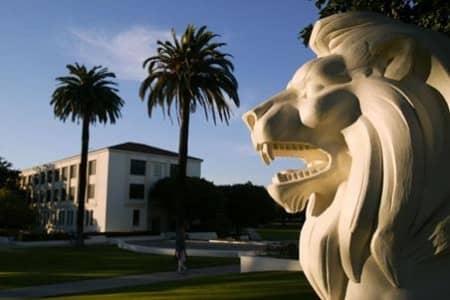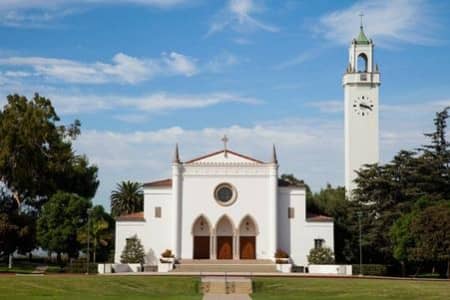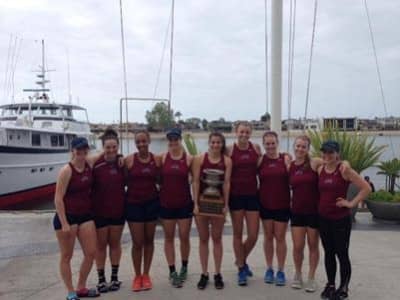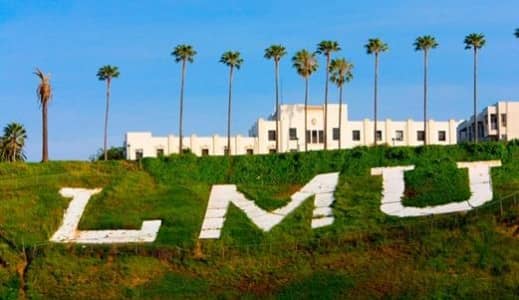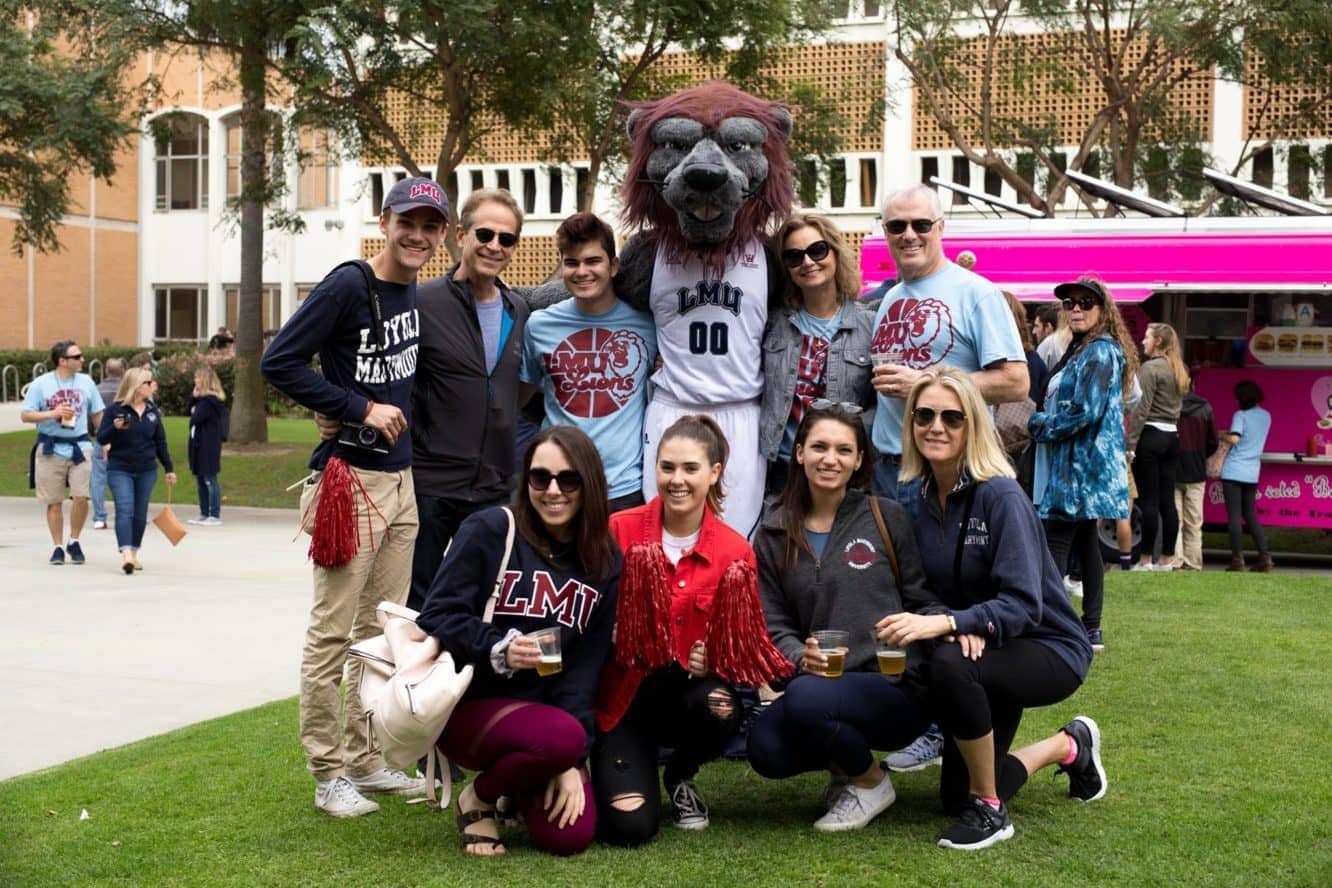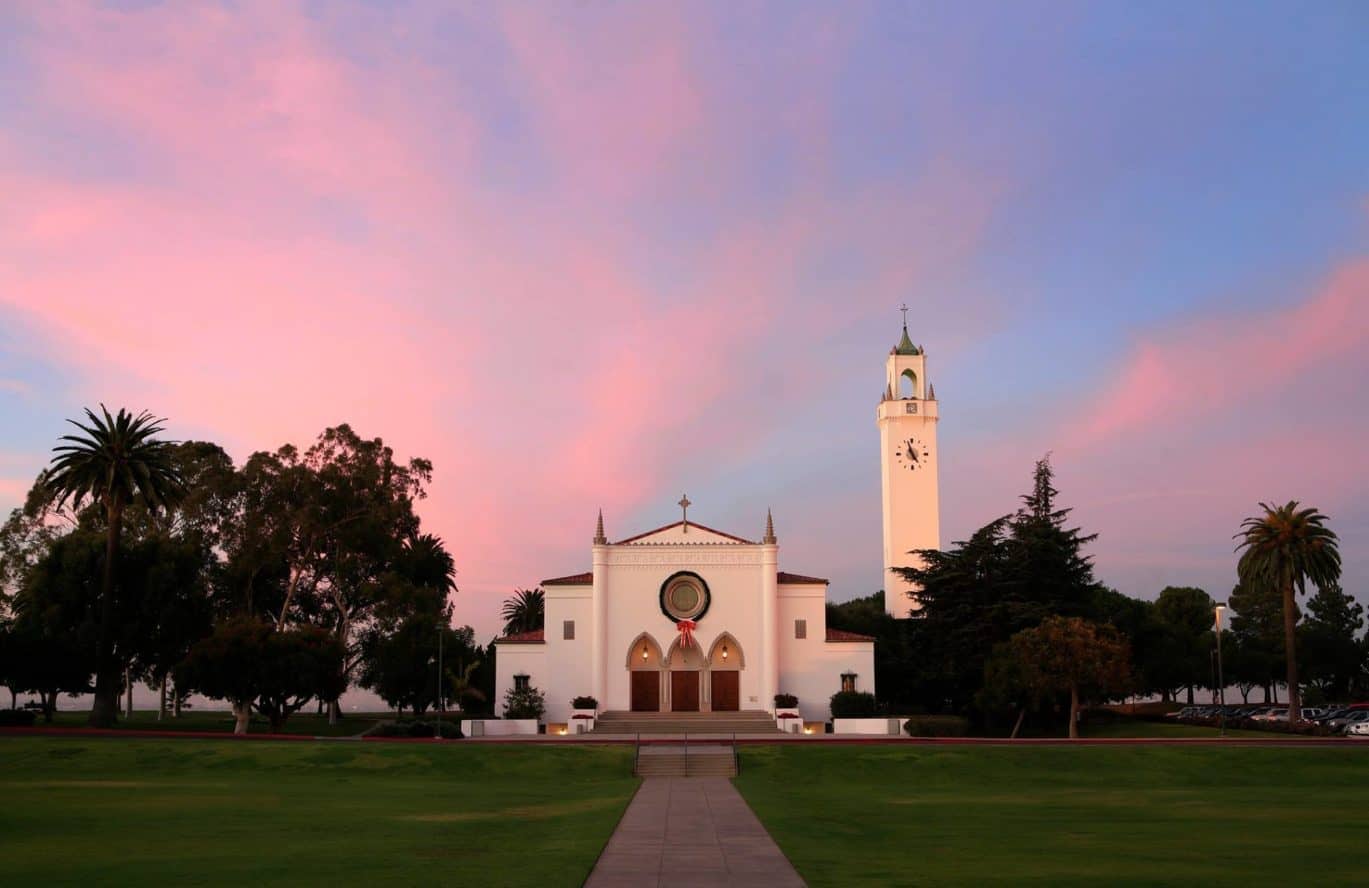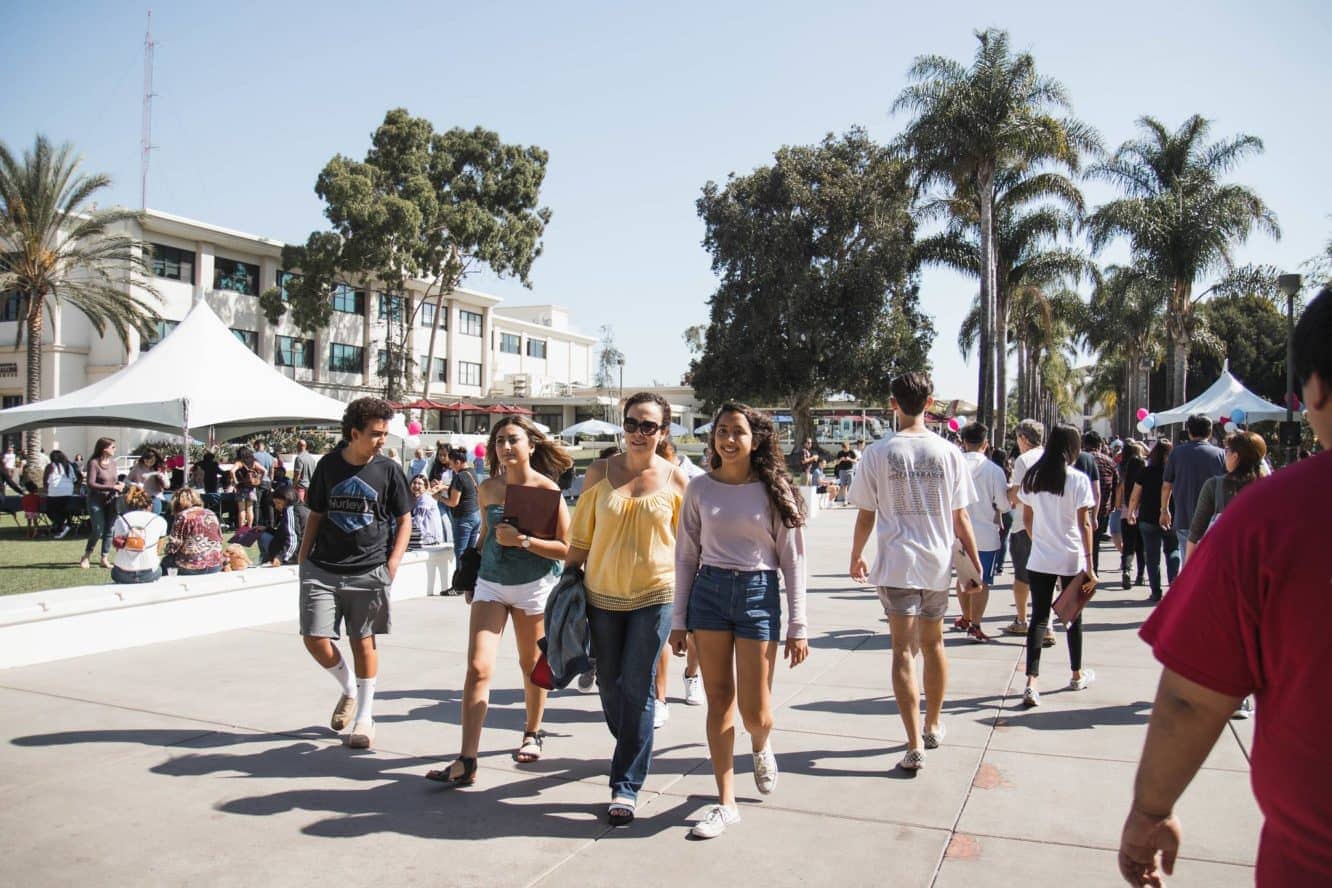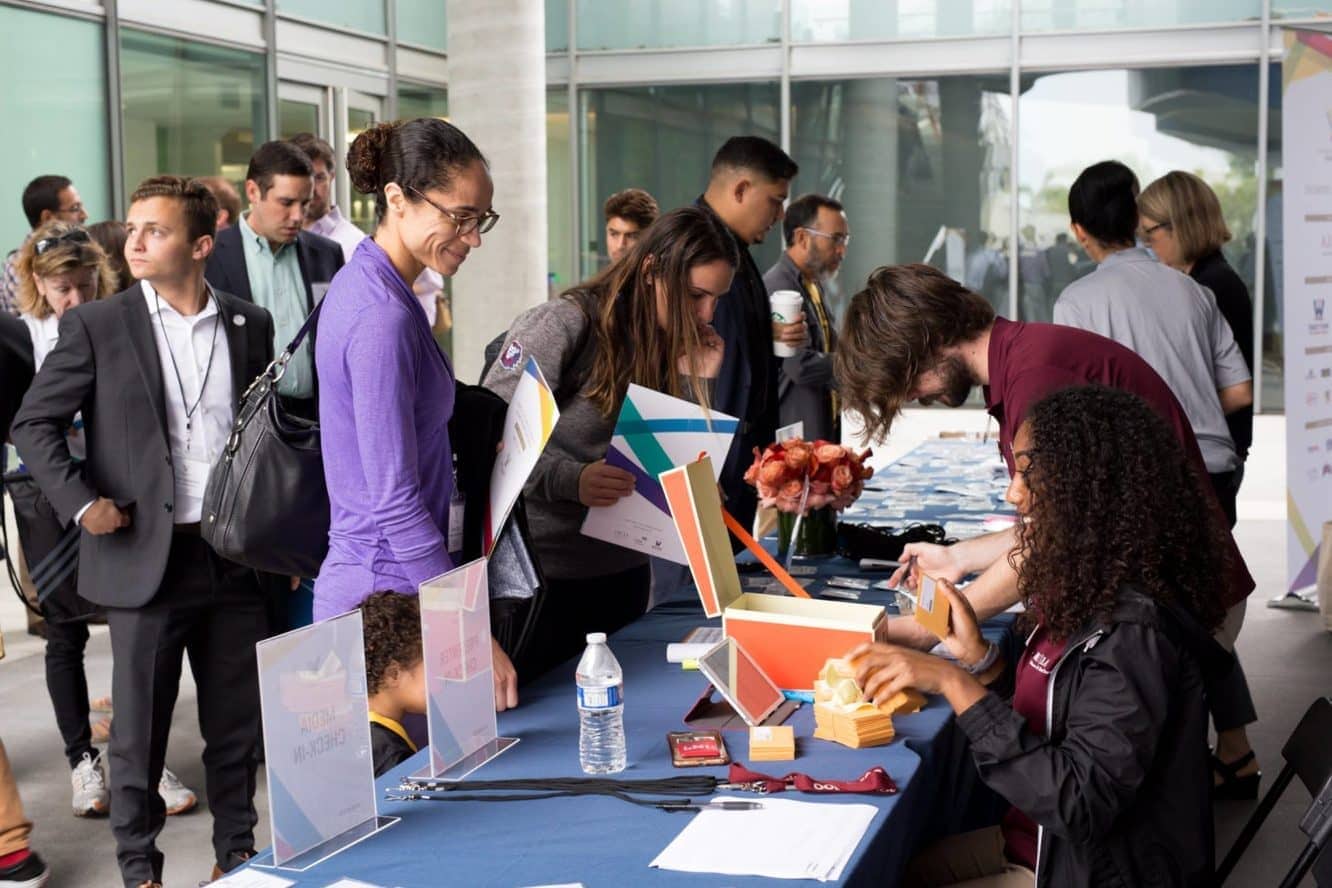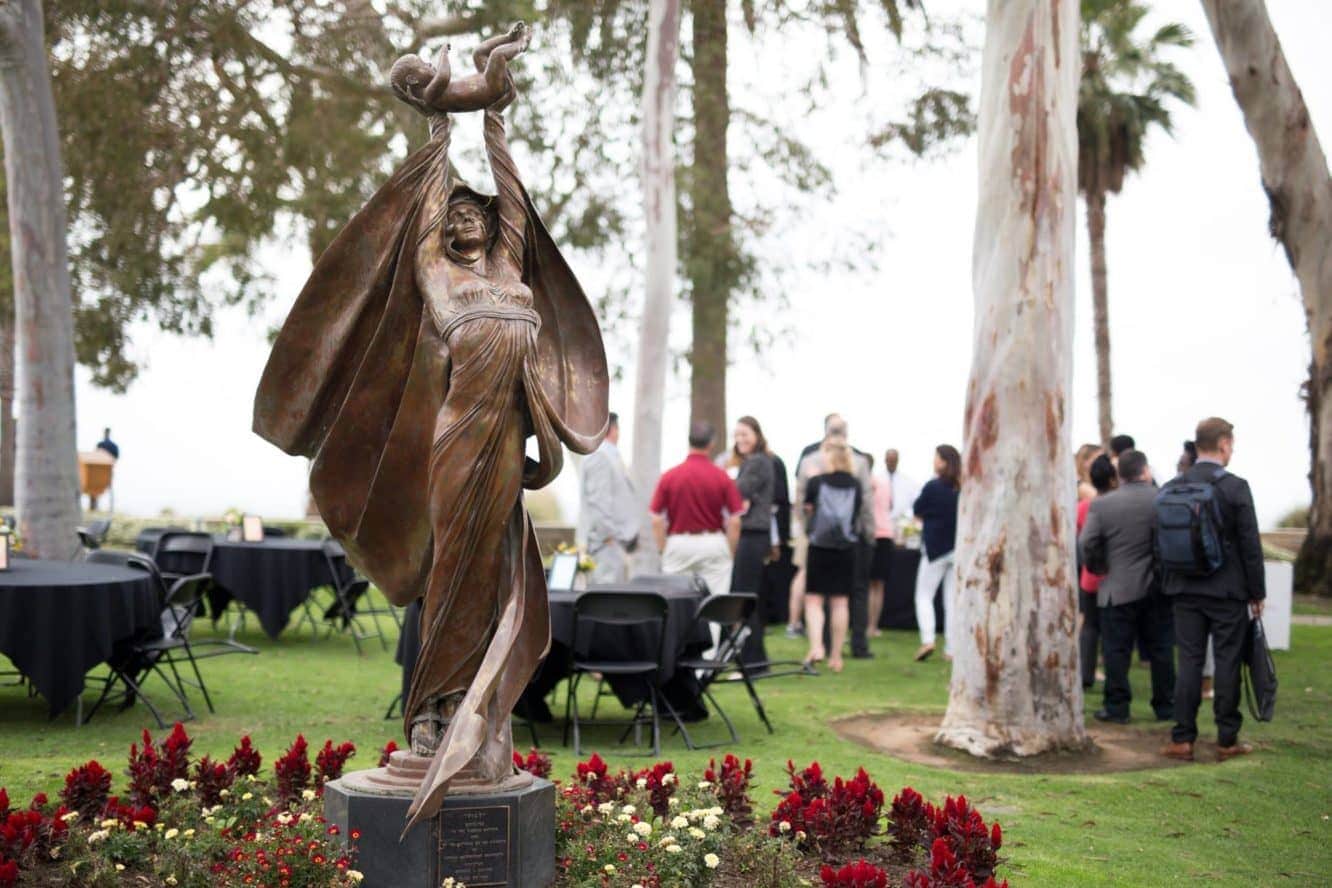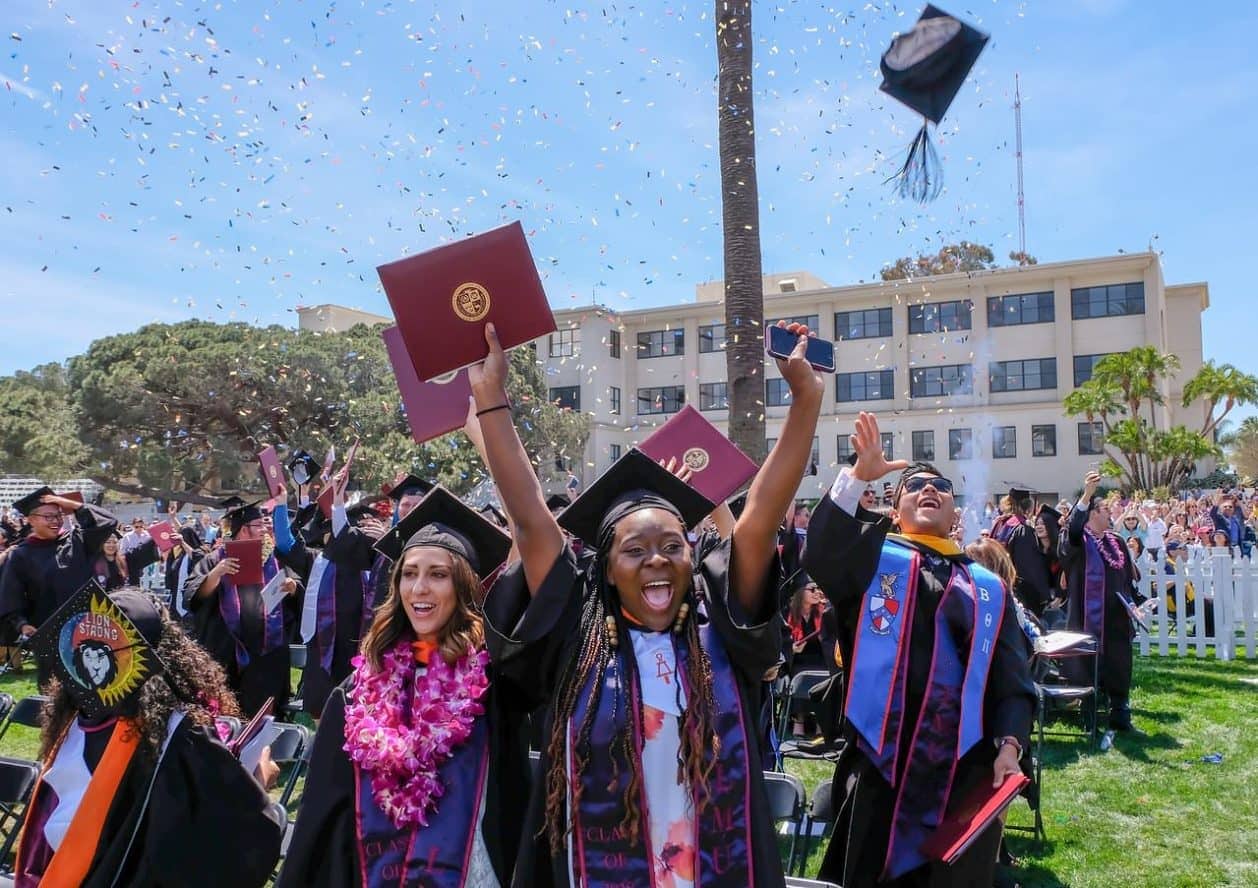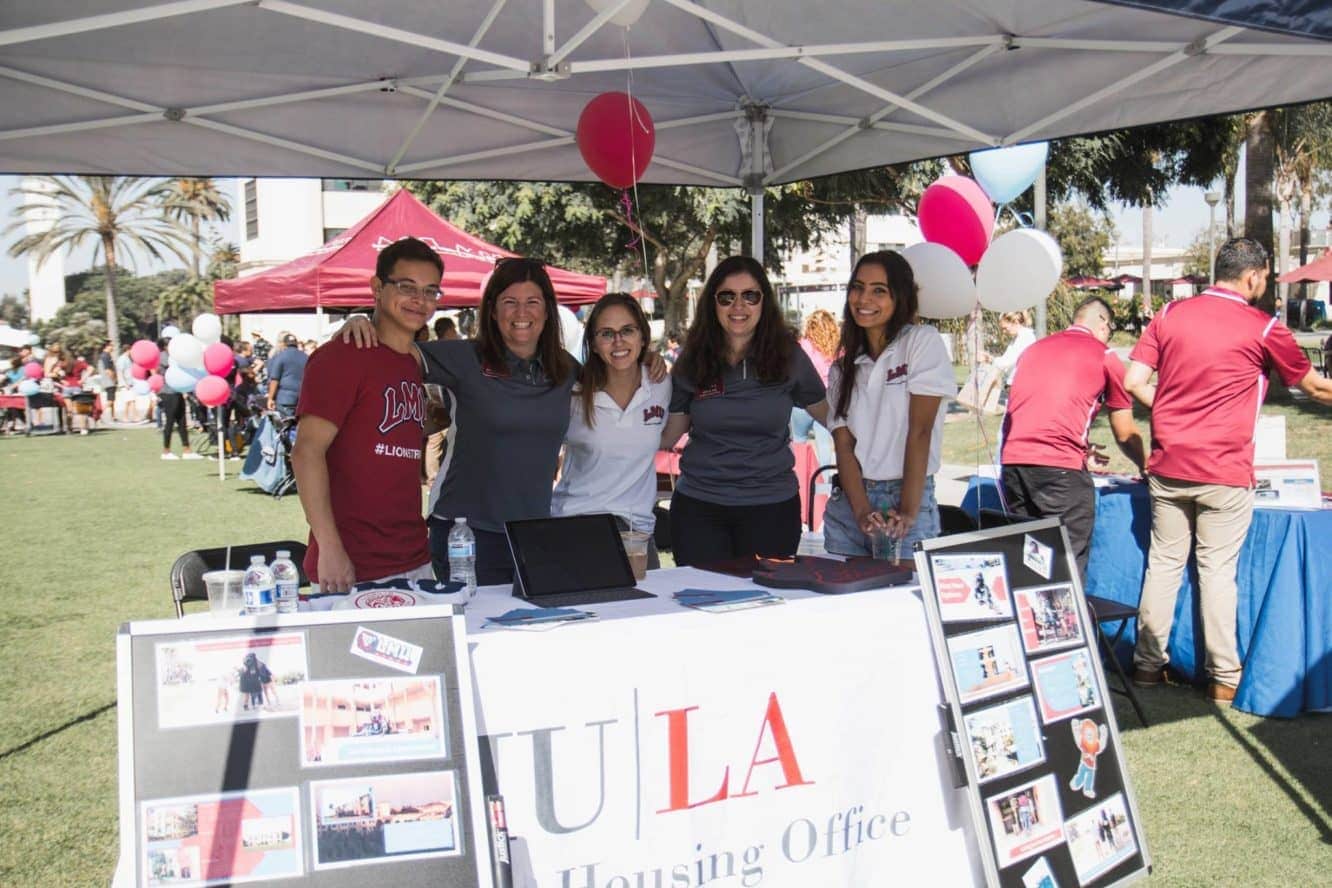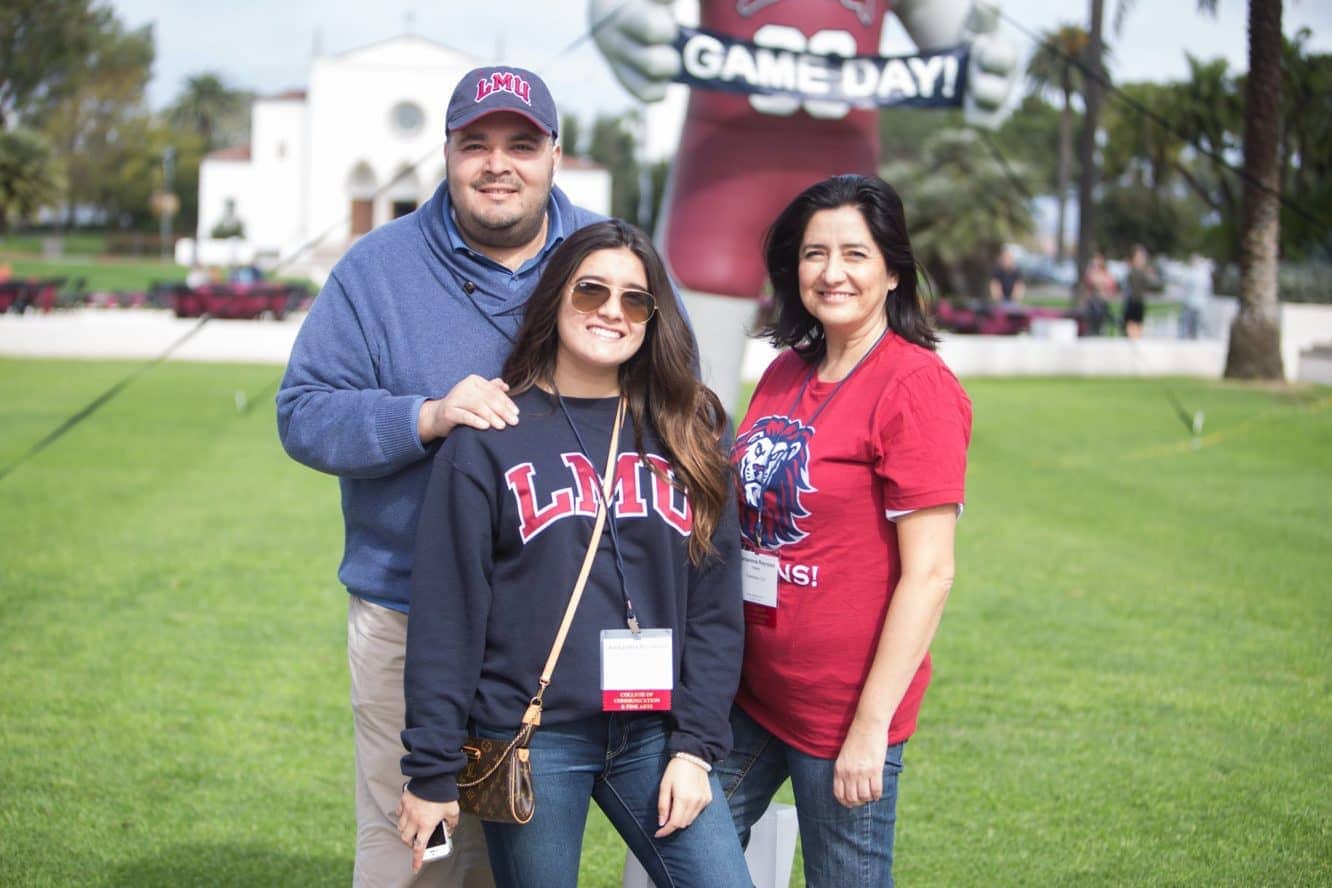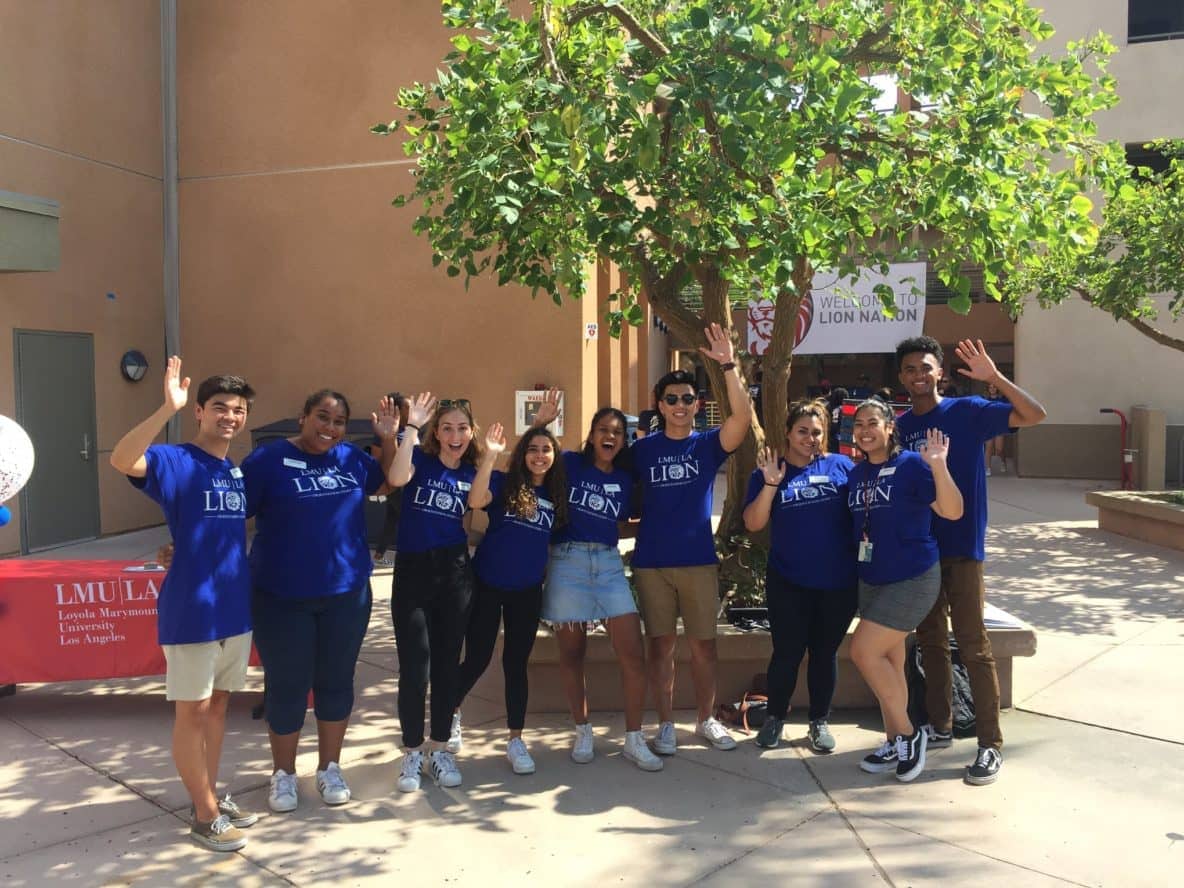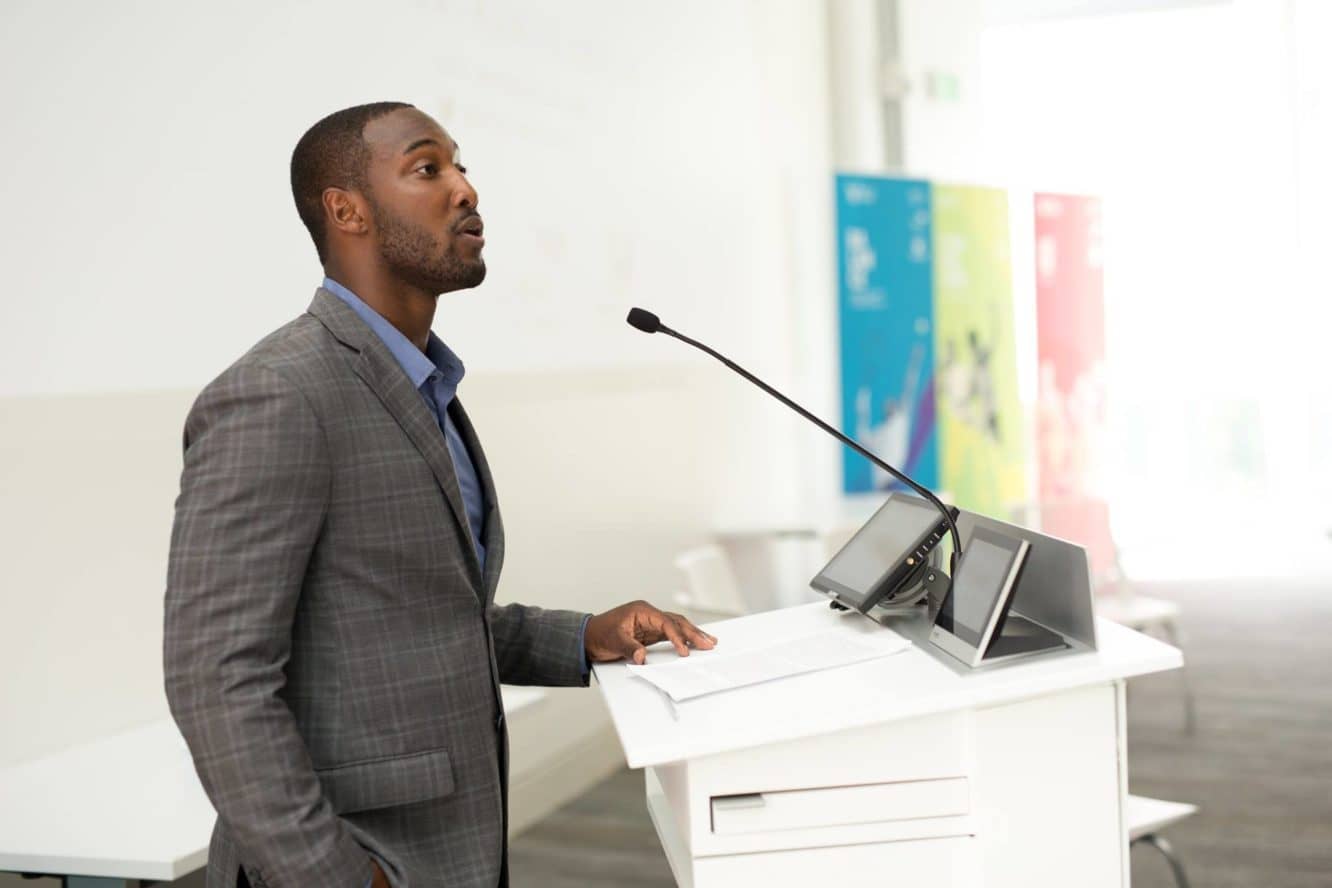Loyola Marymount University
Los Angeles, California
Loyola Marymount University is rooted in its Roman Catholic tradition—a relationship that is directly connected to the school’s personal and academic goals and success. LMU promotes both the intellectual and personal growth of each student. The University’s commitment to Catholicism drives a socially conscious mindset and students are taught to become contributing members of the global community.
Get to know Loyola Marymount University
College Highlights
FIRST YEAR EXPERIENCE
LMU’s first year experience takes a holistic approach to preparing students for successful college careers. Students explore themselves while also engaging with their peers. LMU students learn how to utilize different resources and explore the foundations of critical thinking.
COMMON BOOK
Every incoming freshman is required to finish a common reading assignment prior to arriving on campus. Students must also attend a presentation by the author within the first two weeks of school. The common reader is a shared experience among students, who will learn how to think critically and engage with their peers.
STUDY ABROAD
Study abroad is an amazing opportunity to explore other parts of the world, learn about a different culture, study a language, and become a member of another society. There are five phases to studying abroad:
Phase 1: Interested students must first conduct research. Studying abroad is a big decision and it’s incredibly important for students to do their homework before selecting a program. It’s vital that students double check their selected program against the demands of their major. Students can search for programs by area of study, location, and length. During the first phase, students are invited to attend Study Abroad 101 and the Study Abroad Fair.
Phase 2: The second step is to select a program. Once a student has chosen their destination, they must apply and attend a program advising meeting. Before proceeding to phase 3, students must secure academic approval and request recommendations.
Phase 3: The third phase is about preparation. There are a lot of things a student must consider before leaving. Where will they be living? What courses will they take? During this step, students hammer out the details of their future experience. They conduct more research about the area they’ll be visiting, check visa requirements, and book their flight.
Phase 4: The fourth step is to go abroad! This is the best part. Students will finally embark on their trip and have the experience of a lifetime!
Phase 5: The last phase is reflection. When students return, they will be asked to look back on their experiences while abroad. LMU offers a lecture on reverse culture shock in order to help students re-assimilate to campus. Students are also encouraged to submit photos of their experience.
ALTERNATIVE BREAKS
An alternative break consists of students acting as volunteers during their school breaks. Service can be local, domestic, or international. Participants are exposed to a community in need and are called upon to enact positive change. The efforts of alternative breaks may change from year to year, based on the most pressing needs of society. For the 2015-2016 academic year, LMU is focusing on Ecological Justice, Education, Farm Workers, Human Trafficking, Immigration, Indigenous Communities, Public Health, Land Rights, and Refugee Issues.
ENROLLMENT BY ETHNICITY
Non-U.S. Citizen: 10%
Hispanic/Latinx: 23%
Black or African American, non-Hispanic: 7%
White, non-Hispanic: 43%
Native/Indigenous American or Alaska Native, non-Hispanic: 0%
Asian, non-Hispanic: 10%
Native Hawaiian or other Pacific Islander, non-Hispanic: 0%
Two or more races, non-Hispanic: 7%
Race and/or ethnicity unknown: 0%
SERVICE AT LMU
Every month, LMU takes on a new service initiative with a local non-profit agency. The service project is communicated to the entire LMU campus community. Details of the project, as well as volunteer needs are shared with the student body. Projects change every month, allowing LMU to touch several different parts of the community.
El Espejo: El Espejo is Spanish for mirror and serves as the motto for a service initiative. Here “mirror” is used to emphasize reflection—where volunteers work to find a common connection between them and those they are helping. El Espejo connects LMU students with at-risk middle school students in the community. The mission of this initiative is to educate and mentor students on the importance and potential of intellectual and personal growth.
LIVING LEARNING COMMUNITIES
Living Learning Communities synthesize academics and residence life into one shared experience. Students that participate in an LLC enjoy academic support from their peers, as well as frequent interaction with faculty. LLCs bring together students that share similar interests and areas of study. Currently, there are six living learning communities available at LMU:
ACE: ACE, or Academic Community of Excellence, prepares students for graduate and professional schools. Members of this community practice leadership skills, partake in undergraduate research, and develop professional networks.
Honors: This community is open to freshman enrolled in the Honors program. Members of this LLC take two linked courses with other students in the program. Students involved in this community have the benefit of increased interaction with faculty, academic and personal support, and participation in co-curricular activities.
LEAP: LEAP, also known as Life-Science Early Awareness Program, is open to first year students enrolled in the Seaver College of Science and Engineering. Members of this community take three classes that are linked in subject and structure. The LEAP courses are exclusive to the program, and only members are invited to take part.
PEAP: The Psychology Early Awareness Program is open to first years pursuing a major in psychology. Residents of this community benefit from co-curricular activities and team-building programs related to the field of psychology.
PEEC: PEEC is open to first year, engineering students. Residents of this community work closely with faculty, take part in co-curricular activities, and receive support in the classroom. One of the co-curricular activities associated with the program is “Explore Los Angeles,” which is a community-based project.
The Global City: The Global City is the newest living learning community at LMU. Members of The Global City must take a community related seminar, of which there are two options: A Critical Approach to Globalization or Islam and the Building of America. Faculty from both sections collaborate and connect students through themes and ideas.
LMU also offers learning communities that don’t involve a residence requirement. The communities are based on specific interests. Currently, LMU offers learning communities in the following areas: political science, first year African American students, first generation, and life sciences.
INTERNSHIPS
Internships allow students to apply the concepts and theories they have learned at the academic level to a professional position. Students should aim to complete an internship during their undergraduate experience. If a student wishes to gain credit for their experience, they must verify their internship with the Office of the Registrar. Students whose internships are not for credit may register their experience with Internship Program.
Admission
TEST SCORES
Optional
FRESHMAN PROFILE
SAT Evidence-Based Reading and Writing
25th Percentile: 610 | 75th Percentile: 690
SAT Math
25th Percentile: 600 | 75th Percentile: 700
ACT Composite
25th Percentile: 27 | 75th Percentile: 31
ACT Math
25th Percentile: 25 | 75th Percentile: 30
ACT English
25th Percentile: 28 | 75th Percentile: 34
Tuition & Cost
Tuition: $51,820
Fees: $1,157
Room & Board: $15,550
Contact Loyola Marymount University
Contact Admissions
admission.lmu.edu
(310) 338-2750
admission@lmu.edu
Campus Location
1 Loyola Marymount University Drive
Los Angeles, CA 90045
(310) 338-2700
